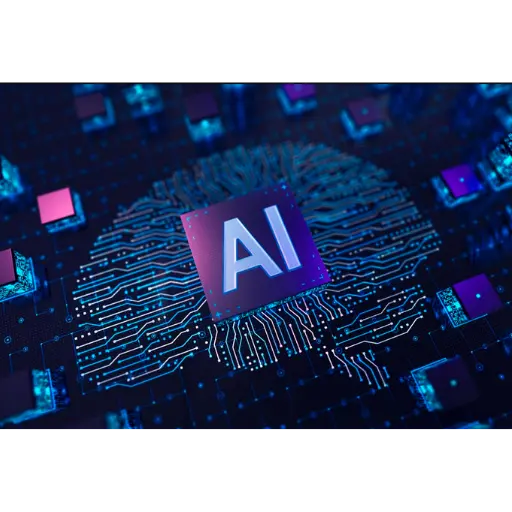AI Trained to Detect Early Warning Signs in Blood Tests

AI is revolutionizing the way we detect diseases, offering the potential to identify conditions like ovarian cancer and infections long before symptoms appear. This article is part of a series exploring the transformative role of AI in medical research and treatment.
AI Spotting Early Signs of Ovarian Cancer
Ovarian cancer is notoriously difficult to detect early, making it one of the most deadly forms of cancer. Audra Moran, head of the Ovarian Cancer Research Alliance (Ocra), emphasizes the importance of early detection:
“Five years before symptoms appear is when ovarian cancer should be detected to impact mortality,” she says.
Traditional methods often detect ovarian cancer too late, as it often spreads from the fallopian tubes to other parts of the body before reaching the ovaries. However, new AI-powered blood tests are showing promise in identifying early signs of the disease, potentially saving lives.
AI’s Role in Accelerating Blood Tests
Dr. Daniel Heller, a biomedical engineer at Memorial Sloan Kettering Cancer Center, is leading the development of AI tools that use nanotubes—tiny carbon tubes capable of emitting fluorescent light. These nanotubes can react to various molecules in blood, allowing for the detection of different conditions. However, the patterns generated by these reactions are too subtle for humans to interpret.
To decode these patterns, Dr. Heller’s team uses machine learning algorithms. The AI system learns from a set of blood samples, differentiating between samples from patients with ovarian cancer and those without, including samples from people with other forms of cancer or similar diseases. Despite challenges with limited data due to ovarian cancer’s rarity, the AI has already shown accuracy beyond current cancer biomarkers.
A Bright Future for AI in Healthcare
Dr. Heller’s team envisions a future where AI can quickly triage all gynecological diseases, helping doctors differentiate between types of cancer or other conditions. The AI system may be ready for clinical use in the next three to five years, according to Dr. Heller.
Speeding Up Infections Diagnosis
AI is also making strides in speeding up the diagnosis of infections like pneumonia. Karius, a California-based company, uses AI to analyze blood samples and identify the exact pathogen causing pneumonia in just 24 hours, compared to the previous standard of 15-20 tests over a week. This method not only reduces testing costs but also helps doctors administer the correct antibiotics more quickly.
Alec Ford, CEO of Karius, explains that AI’s ability to compare patient samples against a vast microbial DNA database—containing tens of billions of data points—is crucial for pinpointing the pathogen. This would have been impossible without AI.
Overcoming Data Challenges
Despite the promising advancements, data-sharing remains a significant challenge in AI-driven healthcare. Dr. Slavé Petrovski, who developed the AI platform Milton, used biomarkers from the UK Biobank to identify 120 diseases with over 90% accuracy. However, he notes that AI often uncovers complex patterns in data that are difficult for humans to understand, such as subtle connections between biomarkers and diseases.
Dr. Heller faces similar challenges with ovarian cancer. While AI helps identify the biomarkers linked to the disease, many of these connections are still not fully understood.
Ocra is working to create a large-scale patient registry to address these data-sharing issues, allowing researchers to train algorithms on more diverse and comprehensive datasets. While AI’s potential in healthcare is immense, Moran cautions that we are still in the early stages:
“We’re still in the wild west of AI now.”
Conclusion
AI is already playing a pivotal role in advancing early detection for conditions like ovarian cancer and pneumonia, and it holds immense promise for revolutionizing the future of medical diagnostics. However, challenges like limited data sharing and understanding AI’s complex patterns remain obstacles to its widespread adoption in clinical practice. As research continues, AI could significantly change how we approach disease detection, saving countless lives in the process.






